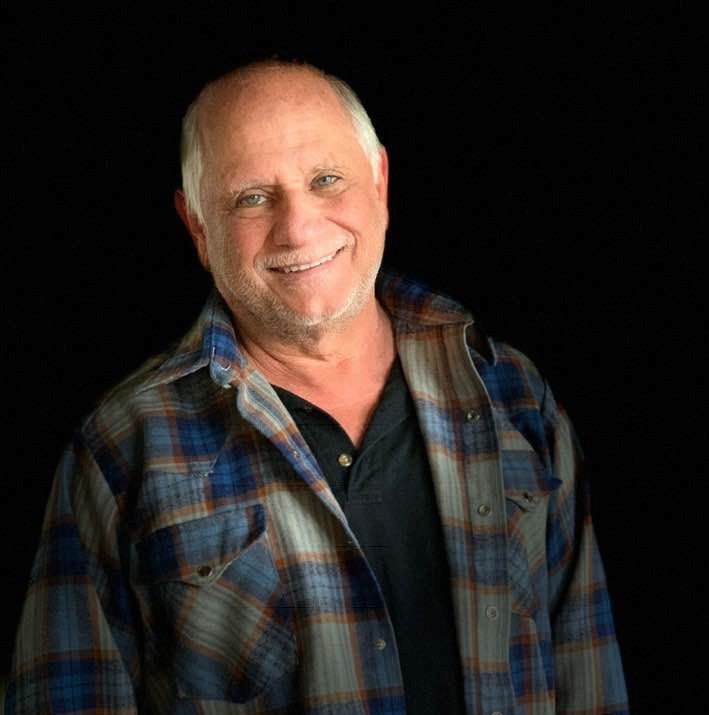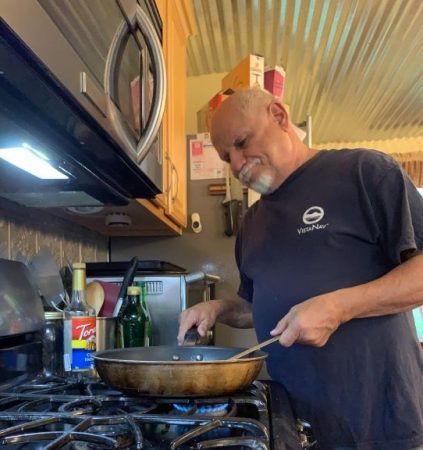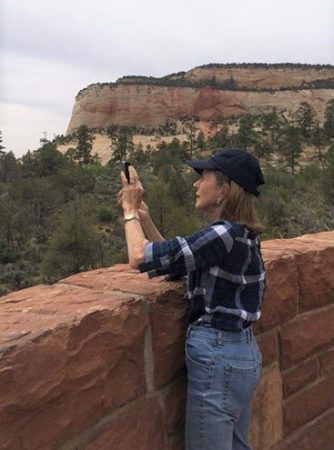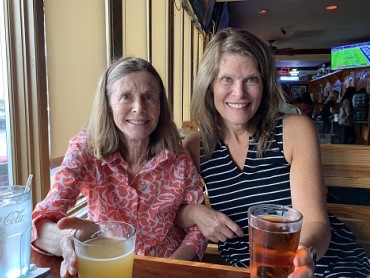An inspirational piece by caregiver Bruce Williams
You used to see him quite often at the social club events. He’d usually sit at the end of the table, listening to the conversation but rarely making a comment, he looked tired and there was always an aura of sadness about him. You glance his way and wonder why he’s always by himself just watching the fun and hearing the laughter as the other people socialize the night away. At some point in the evening, he gets up and quietly slips out the door and back to his empty home.

No one takes notice of him because he seemed preoccupied. He continued to show up until, one day, he disappeared forever. Unnoticed by most, a few of the people may ask what became of him. No one knew. Few cared.
You needed to hear his story. If only he would have spoken of it but he wouldn’t.
Eight years ago, when his wife developed younger-onset Alzheimer’s disease, his life changed forever. Little by little, he took over the daily chores she used to do. Cleaning, paying bills, laundry, cooking.

He had made the decision that home care would be best. He couldn’t bear the thought of sending his bride away. He tried in-home help but, after the agency sent three different people in four months, she was getting upset at the strange new faces.
So, he did it all by himself.
After bills were paid and the housework done, he would sit and read to her. She always asked him to read one article over and over about Alaska from an increasingly dog-eared National Geographic. She had always wanted to go there but, for one reason or another, they never took the time. He read to her every evening until she fell asleep.

She never grew tired of hearing about her beloved Alaska, a magnificent place somehow burned indelibly into her fading memories.
As time went on, she became more difficult. In the early evening when it started to get dark, she would get agitated and very confused. She would ask him to turn on the outdoors light because she couldn’t see her car in the driveway. She demanded the keys even though she hadn’t been driving for five years and her car had been sold.
Reading the Alaska story helped calm her down and, although tired of reading the same article over and over, doing so brought a little peace into his life.
His nights were often interrupted by her restlessness and wandering. One night, after discovering she had left the bed, he found her in the back yard sitting on the garden bench, stark naked and singing a lullaby.
The next day, as if nothing had happened, he performed the same ritual of helping brush her teeth, and getting her dressed. On “good days” If they went out, he would brush her hair, make her sit still while he tried to put on some makeup.
She became incontinent and needed help in the bathroom. He took care of it and led her into the shower and cleaned her up, something he had to do several times a day. Even after she forgot who he was, he would continue to read about Alaska every night and, on occasion, show her pictures of people she didn’t know. He called them her children and grand kids.
She started to have difficulty swallowing and after a few weeks inhaled food into her lungs that caused an infection. “Aspiration pneumonia”, the people at the emergency room called it. The infection spread and the nice people from hospice came and took her to their facility. They were very kind and allowed him to be by her side, which he never left for the next five days. She grew worse and could not eat.

He continued to read her Alaska story even though he wasn’t sure she could hear him.
Her breathing became shallow and would suddenly stop for what seemed an eternity.
Sensing the end was near, he gathered her frail body in his arms and as she strained to take her last breath, he whispered in her ear. “Good bye, my love.”
Dementia caregiving, for anyone, is an extremely difficult task. Even from the very start of symptoms and the earliest stages of the disease, the grinding heartbreak and severe depression of seeing a spouse slowly fail is beyond comprehension.
For a man, it’s much worse. They are among the loneliest people on the planet. Women usually have a support group of friends who, due to their natural ability for nurturing, help provide the emotional support they need. Most men have very little if any. Their buddies stay away and, if they do stop by, the testosterone-charged conversation offers no solace.
So, if you remember this loving, gentle guy, try to seek him out.
You might find him at the cemetery where, with a broken heart, he sits every day for an hour,
reading aloud from an old dog-eared magazine…
trying to bring a little peace into his life.

TCV Editor: Two years ago, Bruce Williams envisioned what the future may look like with his wife, Ann, who was diagnosed with younger-onset Alzheimer’s years earlier. Ann is still alive and in good physical health. Sadly, she struggles to communicate verbally and has forgotten Bruce’s name or that they are married. She smiles and is happy enjoying her co-caregiver friend, Sharon.









Bruce, this is beautifully written but oh so very sad.